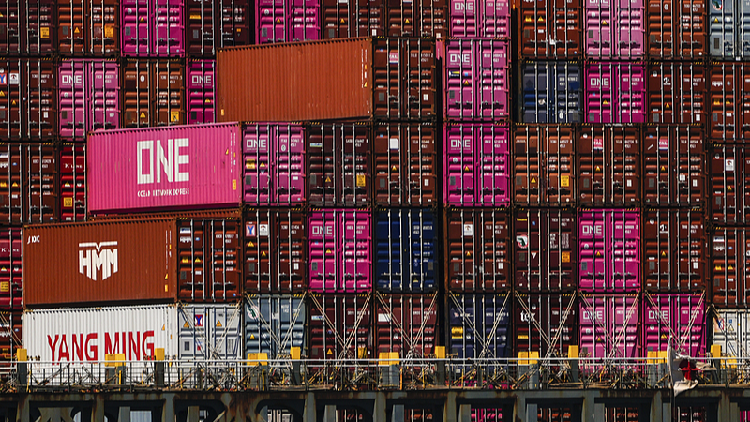Immigrant Supporters Prepare for Another Four-Year Struggle
Trump pledged to implement mass deportations, leading immigrant rights organizations to prepare for potential legal battles.

Immigrants' rights organizations have been actively preparing for a potential second Trump term, focusing on a potential overhaul of the immigration system. Their efforts have included analyzing Trump’s proposals, drafting legal briefs, coordinating messaging, and organizing support for immigrants and asylum seekers. In response to Trump's victory, they expressed alarm and committed to fighting back, setting up for more years of contentious legal battles with his administration.
Some advocates are already strategizing to prompt current leadership at the Department of Homeland Security to take measures to counter the incoming Trump administration, especially concerning immigrant detention and the use of artificial intelligence in enforcement.
“We should expect to see the devastation of immigrant communities all over the country. We should expect to see family separation,” stated Kica Matos, president of the National Immigration Law Center. “It is entirely possible that he will try to use the military to carry out deportations, so that means that Americans all over the country will see the military engaging in enforcement against civilian populations, which is horrifying.”
After securing a historic electoral win with a promise of intensified immigration enforcement, Trump has signaled plans for mass deportation efforts on an unprecedented scale. Immigrant advocates have raised alarms about the potential costs and inhumanity of these actions, warning that they would lead to family separations and community disruptions. Additionally, the president-elect has pledged to create large detention camps, recruit thousands more border agents, reallocate military spending for border security, and utilize the Alien Enemies Act of 1798 to deport suspected gang members without court oversight.
He has also indicated intentions to abolish the “catch-and-release” policy, which allows migrants to remain free while awaiting court proceedings, and to reinstate a previous policy requiring asylum seekers to wait in Mexico as their cases are adjudicated. Furthermore, he has evaded inquiries about the possibility of reinstating family separation.
Advocates are bracing themselves for an arduous battle reminiscent of his first four years in office. Immigration and civil rights organizations frequently challenged many Trump-era policies in court, successfully blocking initiatives like Remain in Mexico and the executive order banning travel from several Muslim-majority nations. Now, advocates assert that they are better equipped than they were in 2016 and are ready to act swiftly based on the actions of the president-elect.
“We are much more sophisticated and organized in realizing that everybody should look at where their strengths are, where their service capacity is,” remarked Greg Chen, senior director of government relations for the American Immigration Lawyers Association.
However, funding presents a significant challenge. The legal battles they anticipate range from critical policy disputes to representation of individual immigrants facing deportation. Archi Pyati, from the Tahirih Justice Center, which focuses on protecting individuals from gender-based violence and forced marriage, emphasized that increased immigration enforcement would result in more costly legal disputes.
“We know it’s going to take a lot of smart lawyers to hold back the worst human rights violations that may be coming, to protect the legal structures that allow immigrants and refugees to find safety in the U.S. and to exercise their basic human rights on the domestic and international stage, and we are preparing ourselves for the legal battles that lay ahead,” she said. “We need resources for sure.”
Advocates are preparing for a flood of early executive actions, followed by more specific agency initiatives during the first 100 days – a scenario expected to mirror Trump’s initial term. Trump’s senior adviser, Jason Miller, confirmed that the president-elect’s early actions would include reinstating policies from his previous administration.
The anxieties among advocates are fueled by various factors, including concerns about how the Supreme Court’s makeup may serve Trump’s interests and the prospect of a unified government enabling him to finance his proposals. There is also apprehension that Trump may act without fear of political consequences due to a lack of re-election concerns.
“It’s his second term. Ostensibly they’re not worried about re-elect, so now’s the time to get all the crazy stuff done,” observed Hassan Ahmad, an immigration lawyer from northern Virginia.
Moreover, there are fears that Trump’s team will be more adept at appointing officials who can quickly implement his policies.
“The Trump administration’s incompetence during the first term was the silver lining that allowed many of his policies to be stopped,” Ahmad noted. “I’m not expecting that to happen nearly as much during his second term. They eventually figured it out — how to program the machine.”
Despite the challenges, immigrants’ rights groups are ready to mobilize. Omar Jadwat, director of the ACLU Immigrants’ Rights Project, shared that his organization has been diligently preparing legal responses to Trump’s anticipated policies. Other organizations, including Just Futures Law and the Detention Watch Network, intend to pressure DHS Secretary Alejandro Mayorkas to take measures to mitigate Trump’s agenda.
Silky Shah, executive director of Detention Watch, expressed that her organization would advocate for DHS to halt plans for new detention centers. Although the Trump administration is expected to seek to expand detention capabilities for expedited deportations, she believes the Biden administration can still slow that process by reversing any current expansion efforts. Shah's group is actively urging DHS to retract proposals for expanded detention and plans to emphasize the urgency of their request in the coming weeks. Additionally, they are advocating for the swift closure of certain facilities.
Mayorkas’ team should also anticipate increased pressure regarding the use of AI and biometric data to enforce immigration laws. Paromita Shah, co-founder and executive director of Just Futures Law, indicated that her organization has long expressed concerns about the department’s plans for AI use in visa vetting and translation services.
“There are things this administration can do to ensure that these technologies aren’t abused,” she stated, adding that her group intends to push DHS for prompt action.
Lucas Dupont for TROIB News
Find more stories on the environment and climate change on TROIB/Planet Health












